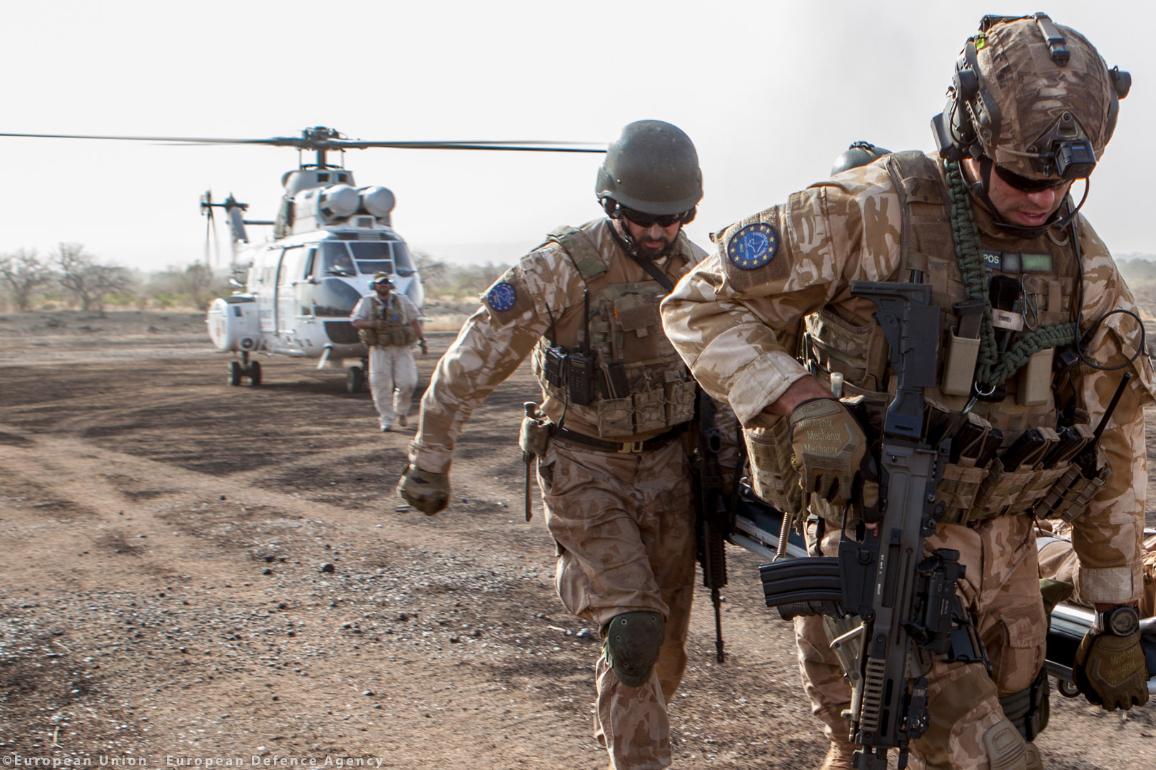Defence: how the EU is boosting its security
While each EU country is responsible for organising its own defence, recent geopolitical tensions have led to a greater push for military cooperation at EU level.
Table of contents
Russia's ongoing war against Ukraine and changes in US foreign policy have increased the urgent need for the EU to strengthen its security and defence and speed up efforts to reinforce its military capabilities.
According to a Eurobarometer survey published in March 2025, two thirds of EU citizens (66%) want the EU to play a greater role in protecting them against global crises and security risks. Security and defence was identified as the area on which the EU should focus the most, being the top priority for 36% of respondents across the EU.
There have been several concrete EU initiatives in recent years to encourage cooperation and reinforce Europe’s capacity to defend itself. Now, the European Parliament is pushing for much more to be done.
Increase spending on defence
Increased military spending across EU countries
Defence spending among EU countries rose by over 30% between 2021 and 2024, when expenditure reached an estimated €326 billion. This is equal to 1.9% of EU GDP. Spending has been consistently going up since 2014 when it amounted to just €147 billion.
€326 billion
Estimated total spending on defence among EU countries in 2024
EU support for investments in security and defence
In March 2025, the European Commission announced the ReArm Europe Plan/Readiness 2030. The plan is aimed at helping EU countries to invest in their defence capabilities.
The Commission proposes that EU countries should be allowed to allocate up to 1.5% of their yearly GDP to defence without being sanctioned for excessive budget deficits.
In addition, the EU will offer loans of up to €150 billion to allow EU countries to jointly purchase military products. The scheme should also be open to Ukraine and other countries such as Norway, Switzerland, Iceland, Liechtenstein, as well as EU candidate countries.
The Commission estimates that the plan could mobilise €800 billion and help enhance defence capabilities across member states.
Parliament welcomes EU plan to boost defence spending
Parliament welcomed the EU plan to boost defence spending in a resolution in March 2025, calling for innovative funding mechanisms to finance large-scale military investments by EU countries.
MEPs also argued in favour of urgent action to strengthen the EU’s security and defence capabilities, provide additional support to Ukraine against Russia’s full-scale invasion, and reduce reliance on non EU-partners when it comes to security and defence.
When reacting to the ReArm Europe Plan and to a related Commission strategy paper on European defence at a meeting of EU leaders on 20 March 2025, Roberta Metsola, President of the European Parliament, said the following: “Simply put: Europe must position itself as a force to be reckoned with. That means being ready... it means getting serious about our security, our readiness and our competitiveness”.
Speeding up the production of weapons
Russia’s war against Ukraine has underlined the need for the EU to strengthen its security and defence strategy and speed up production of weapons.
In July 2023, Parliament voted in favour of allocating €500 million in financing to help EU industry ramp up production of ammunition and missiles to increase deliveries to Ukraine and help EU countries refill stocks, the so-called Act in Support of Ammunition Production.
Supporting EU countries in buying more military products
MEPs backed another legislative act, the European Defence Industry Reinforcement through common Procurement Act (EDIRPA) in September 2023 to support EU countries in jointly spending on defence with weapon systems, ammunition and medical equipment, in order to help fill the most urgent and critical gaps.
The aim of the act was to boost the industrial and technological base when it comes to European defence and foster cooperation on defence procurement. It followed an agreement in June 2023 by Parliament and Council.
The tool has been allocated a €300 million budget until 31 December 2025. Joint purchases have to involve at least three EU countries. It is also open to Norway, Liechtenstein and Iceland.
Increasing the defence industry’s production capacities
In 2024, the European Commission presented the European Defence Industry Programme proposal, with an aim to boost the EU’s security and defence industry. The programme should allocate €1.5 billion between 2025 and 2027 to bridging the gap between short-term defence needs until the end of the 2021-2027 EU budget, as well as long-term strategic goals.
In March 2025, Parliament decided to deal with this proposal as a matter of urgency. The industry and security and defence committees should prepare a joint report in April.
Previous EU measures to boost defence cooperation
The EU's reinforcement of defence is not just a recent thing, as several ambitious initiatives have already been taken in the last decade:
- The permanent structured cooperation (PESCO) was launched in December 2017. It is based on a framework agreement between the 26 participating EU countries (all EU countries except for Malta) to work together to plan, develop, and invest in military capabilities. The countries carry out joint projects including a European Medical Command, Maritime Surveillance System, facilitating the movement of military troops and assets, mutual assistance for cyber-security and rapid response teams, and a joint EU intelligence school.
- The European Defence Fund (EDF) was launched in June 2017. It was the first use of the EU budget to co-fund defence cooperation. MEPs agreed to fund the flagship instrument with a budget of €7.9 billion as part of the EU's long-term budget (2021-2027).
- The EU has strengthened cooperation with NATO on projects across including cybersecurity, joint exercises and counter-terrorism.
- The Military Planning and Conduct Capability (MPCC) was established in 2017 to serve as a command and control structure and oversee military training and assistance missions.
